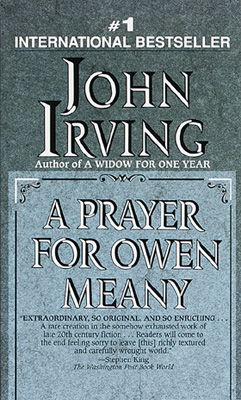 And sometimes it comes while you’re watching VeggieTales with your son.
And sometimes it comes while you’re watching VeggieTales with your son.
That’s not to say that I don’t think VeggieTales values truth, in fact, one of the reasons I keep them on hand for my son is that they make Biblical truths so well understood.
But in a kid way. A 3-7 year old way.
So here I am watching VeggieTales “Star of Christmas”. And I’m crying.
Now, I won’t spoil the plot for those who haven’t seen it (and you really should), but a general synopsis is that Millward Phelps (Larry the Cucumber) and Cavis Appythart (Bob the Tomato) are playwrights looking to write a Christmas Eve story that will “teach London how to love”. The general premise isn’t a new one. Jesus is the reason for the season. Christ is the true “star of Christmas”. But what struck me was an ending that reminded me of why; that Jesus’ birth wasn’t a sweet and tender moment, but a glorious inbreaking. That Christ came into a rather sad and broken world that had long forgotten how to have faith or hope or love and gave it a reason and a way to have those things again.
December has begun and, for those who follow the Christian calendar, so has the season of Advent. Advent marks the beginning of the Christian year, the time that we spend in anticipation of the coming of Jesus Christ, culminating on Christmas day.
It is tempting to make Advent a time that simply replaces the giddy excitement of Santa with a more subdued warmth of Jesus. It is tempting to replace “Jingle Bells” with “Joy To The World”, but retain the same surface level nostalgia that Christmas has always had. In other words, it is tempting to replace Claus with Christ and miss that we’ve still made Christmas all about us. Our desires. Our expectations. Our anticipation.
Oftentimes, during Advent, we try and pretend to live in anticipation of Christ’s first arrival. Not that it isn’t helpful to place ourselves in the sandals of those living over 2000 years ago, but we can’t do so simply as a warm and fuzzy imaginative exercise. While it is important that Advent stir in us our own longing for the Kingdom that is “now and not yet” it must also force us to consider those who are still waiting for Christ to arrive for the first time.
 For too many who live among us, the love of Christ has yet to enter into their lives. While we sing “O Come O Come Immanuel” in anticipation of a second coming or with a nostalgic look back at the first, many of our friends and neighbors and co-workers are looking for “God with us” to be with us now, today, immediately. For those in prison and on the street, without homes and without hope, the request for Immanuel to come is not a plea of hopeful optimism, but a cry of desperation.
For too many who live among us, the love of Christ has yet to enter into their lives. While we sing “O Come O Come Immanuel” in anticipation of a second coming or with a nostalgic look back at the first, many of our friends and neighbors and co-workers are looking for “God with us” to be with us now, today, immediately. For those in prison and on the street, without homes and without hope, the request for Immanuel to come is not a plea of hopeful optimism, but a cry of desperation.
Knowing this, we cannot spend our Advent simply looking for a future that is promised, but dealing with a present that is precarious. We can’t just put on a show full of warm feelings and good cheer and call it a successful Christmas Eve. We have to be the hands and feet of Jesus, moving into a world that is lost and lonely. We must not simply put ourselves in the place of those 2000 years past, but those living in the here and now who are in need of Jesus’ arrival. We must be the second incarnation that we are called to be, we must carry with us the faith and hope and love that so many in this world are still waiting for. We must be bearers of Christ in our neighborhoods and workplaces and cities. We must be Immanuel. We must bring the promise of “God with us” to a world that so desperately needs for Him to be.
